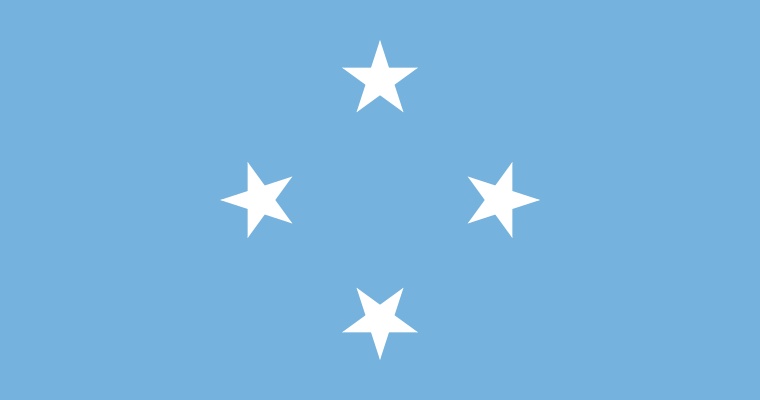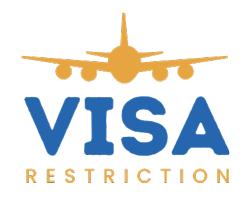Visa-Free Countries for Micronesian Citizens: A Comprehensive Guide

Micronesian citizens enjoy a relatively high level of global mobility, with visa-free or visa-on-arrival access to numerous countries worldwide. As of 2024, holders of Micronesian passports can travel to 124 countries and territories without the need for a pre-arranged visa[1]. This article provides a detailed overview of visa-free travel opportunities for Micronesian citizens, including entry requirements, allowed stay durations, and other essential information.
Schengen Area Countries
In 2016, Micronesia signed a mutual visa waiver agreement with Schengen Area countries, significantly enhancing travel opportunities for its citizens[1]. This agreement allows Micronesian passport holders to visit 26 European countries without a visa for up to 90 days within a 180-day period. The Schengen Area includes:
- Austria
- Belgium
- Czech Republic
- Denmark
- Estonia
- Finland
- France
- Germany
- Greece
- Hungary
- Iceland
- Italy
- Latvia
- Liechtenstein
- Lithuania
- Luxembourg
- Malta
- Netherlands
- Norway
- Poland
- Portugal
- Slovakia
- Slovenia
- Spain
- Sweden
- Switzerland
It’s important to note that while these countries offer visa-free access, travelers must still meet other entry requirements, such as having a valid passport, sufficient funds, and a return ticket.
Other European Countries
Several European countries outside the Schengen Area also offer visa-free access to Micronesian citizens:
- Albania (eVisa required)
- Andorra
- Bosnia and Herzegovina (90 days)
- Bulgaria (90 days)
- Croatia (90 days)
- Cyprus (90 days)
- Ireland (visa required, but travel between Ireland and Northern Ireland is possible)
- Kosovo
- Moldova (90 days)
- Monaco
- Montenegro (90 days)
- North Macedonia (visa required)
- Romania (90 days)
- San Marino
- Serbia (visa required)
- United Kingdom and Crown dependencies (6 months)
- Vatican City
Americas
In the Americas, Micronesian citizens enjoy visa-free access to several countries:
- Belize
- Colombia (90 days)
- Costa Rica (30 days)
- Dominica (21 days)
- Dominican Republic (30 days)
- Ecuador (90 days)
- Grenada (3 months)
- Haiti (90 days)
- Mexico (180 days)
- Panama (90 days)
- Peru (90 days)
- Saint Lucia (6 weeks)
- Saint Vincent and the Grenadines (3 months)
- Suriname (90 days)
- United States (5 years or unlimited)[1]
It’s worth noting that while Canada requires a visa for Micronesian citizens, the United States offers visa-free access, which is a significant advantage for travelers from Micronesia.
Asia and Middle East
Several Asian and Middle Eastern countries offer visa-free or visa-on-arrival access to Micronesian passport holders:
- Armenia (visa on arrival / eVisa, 120 days)
- Bahrain (visa on arrival / eVisa, 14 days)
- Bangladesh (visa on arrival, 30 days)
- Cambodia (visa on arrival / eVisa, 30 days)
- Georgia (eVisa, 90 days)
- Hong Kong (14 days)
- India (e-Visa, 60 days)
- Iran (eVisa, 30 days)
- Israel (90 days)
- Jordan (visa on arrival, 30 days)
- Kyrgyzstan (eVisa, 30 or 60 days)
- Laos (eVisa / visa on arrival, 30 days)
- Macau (visa on arrival, 30 days)
- Malaysia (30 days)
- Maldives (visa on arrival, 30 days)
- Mongolia (eVisa, 30 days)
- Nepal (visa on arrival / eVisa, 90 days)
- Philippines (30 days)
- Singapore (30 days)
- South Korea (30 days)
- Sri Lanka (Electronic Travel Authorization, 30 days)
- Thailand (eVisa, 60 days)
- Timor-Leste (visa on arrival, 30 days)
- Vietnam (eVisa, 90 days)
Africa
While many African countries require visas for Micronesian citizens, some offer visa-free or visa-on-arrival access:
- Angola (30 days, maximum 3 entries per calendar year)
- Benin (eVisa / visa on arrival, 30 days / 8 days)
- Burundi (visa on arrival)
- Cape Verde (visa on arrival)
- Comoros (visa on arrival, 45 days)
- Djibouti (eVisa, 31 days)
- Egypt (visa on arrival, 30 days)
- Ethiopia (eVisa, up to 90 days)
- Guinea (eVisa, 90 days)
- Guinea-Bissau (visa on arrival, 90 days)
- Kenya (Electronic Travel Authorization, 90 days)
- Madagascar (eVisa / visa on arrival, 90 days)
- Malawi (visa on arrival, 30 days)
- Mauritania (visa on arrival)
- Mauritius (visa on arrival, 60 days)
- Mozambique (visa on arrival / eVisa, 30 days)
- Rwanda (eVisa / visa on arrival, 30 days)
- Senegal (visa on arrival, 90 days)
- Seychelles (Visitor’s Permit on arrival, 90 days)
- Sierra Leone (eVisa, 1 month)
- Somalia (visa on arrival, 30 days)
- Tanzania (eVisa / visa on arrival)
- Togo (visa on arrival, 7 days)
- Uganda (eVisa, 3 months)
- Zambia (visa on arrival / eVisa, 90 days)
- Zimbabwe (visa on arrival, 30 days)
Oceania
As an Oceanian country, Micronesia enjoys good relations with its neighbors, reflected in visa-free access to many countries in the region:
- Cook Islands (31 days)
- Fiji (30 days)
- Kiribati (90 days)
- Marshall Islands (unlimited)
- Nauru (visa on arrival)
- Niue (30 days)
- Palau (1 year)
- Papua New Guinea (eVisa / free visa on arrival, 60 days)
- Samoa (60 days)
- Solomon Islands (free visa on arrival, 3 months)
- Tonga (visa on arrival, 31 days)
- Tuvalu (visa on arrival, 1 month)
- Vanuatu (120 days)
It’s important to note that while Australia and New Zealand require visas for Micronesian citizens, many of their associated territories offer easier access.
Important Considerations
While this list provides a comprehensive overview of visa-free travel opportunities for Micronesian citizens, travelers should keep several important factors in mind:
-
Passport validity: Most countries require that passports be valid for at least six months beyond the intended stay.
-
Purpose of travel: Visa-free access is typically granted for tourism or short business trips. Other purposes, such as study or work, usually require a visa.
-
Length of stay: Even in visa-free countries, there are limits on the duration of stay. Overstaying can result in fines, deportation, or future travel restrictions.
-
Sufficient funds: Many countries require proof of sufficient funds to cover the duration of the stay.
-
Return ticket: Some countries may ask for proof of onward travel or a return ticket.
-
Health requirements: Some countries may require proof of certain vaccinations or health insurance.
-
Political stability: Visa policies can change quickly due to political events or security concerns. Always check the latest information before traveling.
-
Visa on arrival vs. eVisa: While both offer relatively easy access, eVisas often require pre-application online, while visas on arrival are obtained at the port of entry.
Passport validity: Most countries require that passports be valid for at least six months beyond the intended stay.
Purpose of travel: Visa-free access is typically granted for tourism or short business trips. Other purposes, such as study or work, usually require a visa.
Length of stay: Even in visa-free countries, there are limits on the duration of stay. Overstaying can result in fines, deportation, or future travel restrictions.
Sufficient funds: Many countries require proof of sufficient funds to cover the duration of the stay.
Return ticket: Some countries may ask for proof of onward travel or a return ticket.
Health requirements: Some countries may require proof of certain vaccinations or health insurance.
Political stability: Visa policies can change quickly due to political events or security concerns. Always check the latest information before traveling.
Visa on arrival vs. eVisa: While both offer relatively easy access, eVisas often require pre-application online, while visas on arrival are obtained at the port of entry.
Conclusion
Micronesian citizens enjoy visa-free or visa-on-arrival access to a wide range of countries across the globe, from the beaches of the Caribbean to the historic cities of Europe and the diverse landscapes of Africa and Asia. This level of mobility places the Micronesian passport in a relatively strong position globally, ranking 42nd in terms of travel freedom according to the Henley Passport Index[1].
However, it’s crucial for travelers to always verify the most current visa requirements before planning any international trip, as policies can change. Additionally, meeting other entry requirements, such as having a valid passport, sufficient funds, and adhering to the allowed duration of stay, is essential for smooth and hassle-free travel.
With careful planning and awareness of visa policies, Micronesian citizens can explore a significant portion of the world without the need for advance visa applications, opening up a wealth of travel opportunities and cultural experiences.
Citations: [1] https://en.wikipedia.org/wiki/Visa_requirements_for_Micronesian_citizens [2] https://www.latitudeworld.com/passport-index/micronesia-passport/ [3] https://visaindex.com/country/micronesia-passport-ranking/ [4] https://en.wikipedia.org/wiki/Visa_requirements_for_Micronesian_citizens [5] https://www.passportindex.org/country/micronesia/ [6] https://embassies.net/micronesia-passport-visa-free-countries

